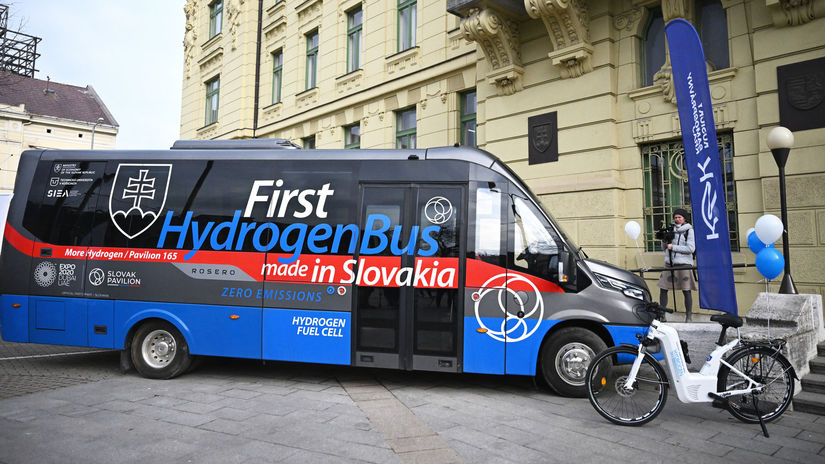
Košice Region, in collaboration with 22 partners from 7 European countries, has been successfully granted financial aid of 9 million EUR in order to build the very first Hydrogen Valley in Slovakia. Hydrogen Valleys are used for hydrogen processing, starting from its production to the ultimate consumption. The call for proposals was launched by Clean Hydrogen Joint Undertaking under the Horizon Europe framework. To this day, it is the biggest success of Slovak scientists who have applied for a grant from the Clean hydrogen Joint Undertaking. The project is called EastGate H2V and is set to begin in April 2025.
Phase 1 of the project
By mid-2027, a 2 MW electrolyzer is set to be launched in Košice, producing 170 tons of green hydrogen annually. This output is expected to cover the yearly consumption of 10 hydrogen buses in the region and one hydrogen-powered transport drone, accompanied by hydrogen refueling stations.
Phase 2 of the project
The second phase involves building another 2 MW electrolyzer and increasing annual hydrogen production to over 500 tons. The plan includes expanding the regional fleet of hydrogen buses, introducing a hydrogen-powered waste collection vehicle, and deploying three additional transport drones. Feasibility studies will be done throughout the project in order to re-built already existing natural gas pipelines for hydrogen transport, supporting the transition to a hydrogen-based energy system.
The project aims to create a sustainable ecosystem that encompasses hydrogen production, distribution, and diversified end-use applications. EastGate H2V integrates hydrogen solutions across all modes of transport. By leveraging hydrogen’s potential in bus, maritime, and air transport, the project not only supports decarbonisation and CO₂ emissions reduction, but also fosters job creation, research, energy development, and overall sustainable growth in the region.
Hydrogen presents several benefits:
- versatility: it powers industrial processes, heavy transport, and serves as a long-term energy storage solution;
- environmental impact: hydrogen production enables zero-emission operations, a critical factor in combating climate change;
- durability: fuel cells offer a longer lifespan, reducing disposal cycles and enhancing ecological balance;
- safety and waste reduction: with fewer toxic materials, fuel cells generate less waste, contributing to a cleaner environment.
Published 04.03.2025, slord




